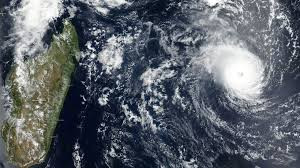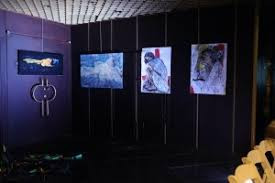
THE Victoria Falls Wildlife Trust (VFWT) in Zimbabwe has received a $25 000 environmental grant from Ford Motor Company in order to promote wildlife conservation throughout the region.
VicFalls24

The project is located in the town of Victoria Falls in north-west Zimbabwe, named after the world-famous waterfall on the Zambezi River that forms the natural border with neighbouring Zambia.
Working with local communities and partners, conservation education is one of the Victoria Falls Wildlife Trust’s main projects.
“Once a week we transport a group of school children from the area to interact with wildlife ambassadors and discuss the importance of conservation and natural resources,” says Alberto DeLeo, the Trust’s managing director.
“This education is crucial to create conservation awareness, and the grant from the Ford Motor Company will make it possible for us to reach a lot more children. Throughout the year, the VFWT hosts between 800 to 1 000 children in this weekly activity, transporting them to the facility and giving them an opportunity to interact with elephant, cheetah and a white-back vulture,” he said.
“For many kids, this is the first time they see these animals outside of a conflict situation, and the project focuses on the benefits of wildlife in the area, the importance of conservation for tourism and the dependence on wildlife for many occupants.”
A hot lunch is provided for the children, and each one departs with a booklet that highlights human wildlife conflict, prevention and assistance, along with the critical issues of poisoning and poaching.
- Chamisa under fire over US$120K donation
- Mavhunga puts DeMbare into Chibuku quarterfinals
- Pension funds bet on Cabora Bassa oilfields
- Councils defy govt fire tender directive
Keep Reading
In order to deal with conflict between people and wild animals, VFWT maintains a conflict hotline, assisting rural communities to find ways to mitigate the conflict — particularly in the peak season from December to April each year, when carnivores attack livestock and elephants raid rural village gardens and crops. A VFWT community liaison is based within the rural community to respond to these incidents and help develop solutions.
VFWT also runs a rescue and rehabilitation facility to care for injured and orphaned animals, and particularly those affected by poaching or other human-inflicted injuries. The aim is to release the animals back into the wild, but where this is not possible they are cared for, and may become wildlife ambassadors to assist with the conservation education program.
A new initiative, which will be made possible by the Ford environmental grant, will be the establishment of a permanent high care facility for young mammals and birds that require 24-hour care. This will allow for improved monitoring, feeding and veterinary treatment of these animals so they can be rehabilitated and returned to the wild.











